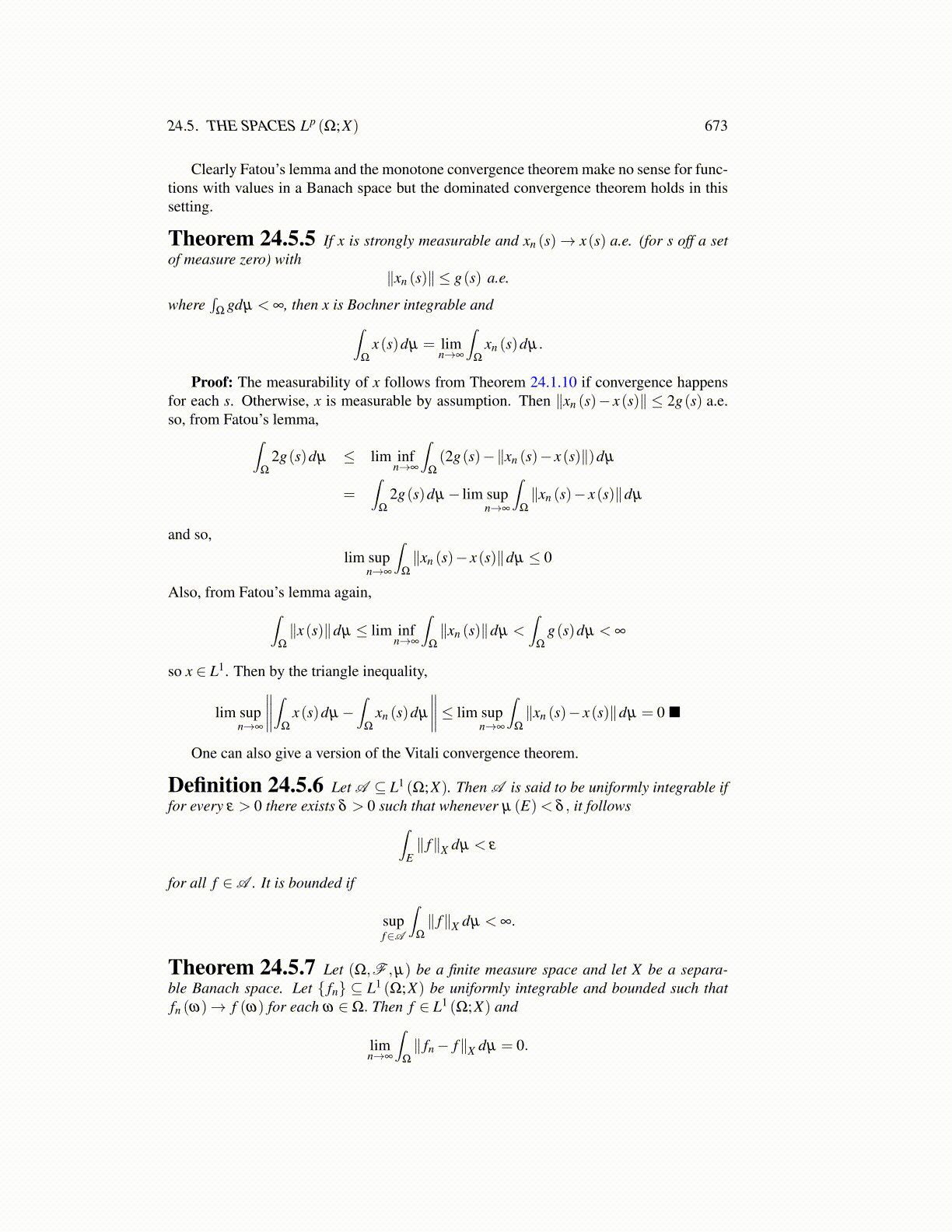
24.5. THE SPACES Lp (Ω;X) 673
Clearly Fatou’s lemma and the monotone convergence theorem make no sense for func-tions with values in a Banach space but the dominated convergence theorem holds in thissetting.
Theorem 24.5.5 If x is strongly measurable and xn (s)→ x(s) a.e. (for s off a setof measure zero) with
∥xn (s)∥ ≤ g(s) a.e.
where∫
Ωgdµ < ∞, then x is Bochner integrable and∫
Ω
x(s)dµ = limn→∞
∫Ω
xn (s)dµ.
Proof: The measurability of x follows from Theorem 24.1.10 if convergence happensfor each s. Otherwise, x is measurable by assumption. Then ∥xn (s)− x(s)∥ ≤ 2g(s) a.e.so, from Fatou’s lemma,∫
Ω
2g(s)dµ ≤ lim infn→∞
∫Ω
(2g(s)−∥xn (s)− x(s)∥)dµ
=∫
Ω
2g(s)dµ− lim supn→∞
∫Ω
∥xn (s)− x(s)∥dµ
and so,lim sup
n→∞
∫Ω
∥xn (s)− x(s)∥dµ ≤ 0
Also, from Fatou’s lemma again,∫Ω
∥x(s)∥dµ ≤ lim infn→∞
∫Ω
∥xn (s)∥dµ <∫
Ω
g(s)dµ < ∞
so x ∈ L1. Then by the triangle inequality,
lim supn→∞
∥∥∥∥∫Ω
x(s)dµ−∫
Ω
xn (s)dµ
∥∥∥∥≤ lim supn→∞
∫Ω
∥xn (s)− x(s)∥dµ = 0 ■
One can also give a version of the Vitali convergence theorem.
Definition 24.5.6 Let A ⊆ L1 (Ω;X). Then A is said to be uniformly integrable iffor every ε > 0 there exists δ > 0 such that whenever µ (E)< δ , it follows∫
E∥ f∥X dµ < ε
for all f ∈A . It is bounded if
supf∈A
∫Ω
∥ f∥X dµ < ∞.
Theorem 24.5.7 Let (Ω,F ,µ) be a finite measure space and let X be a separa-ble Banach space. Let { fn} ⊆ L1 (Ω;X) be uniformly integrable and bounded such thatfn (ω)→ f (ω) for each ω ∈Ω. Then f ∈ L1 (Ω;X) and
limn→∞
∫Ω
∥ fn− f∥X dµ = 0.